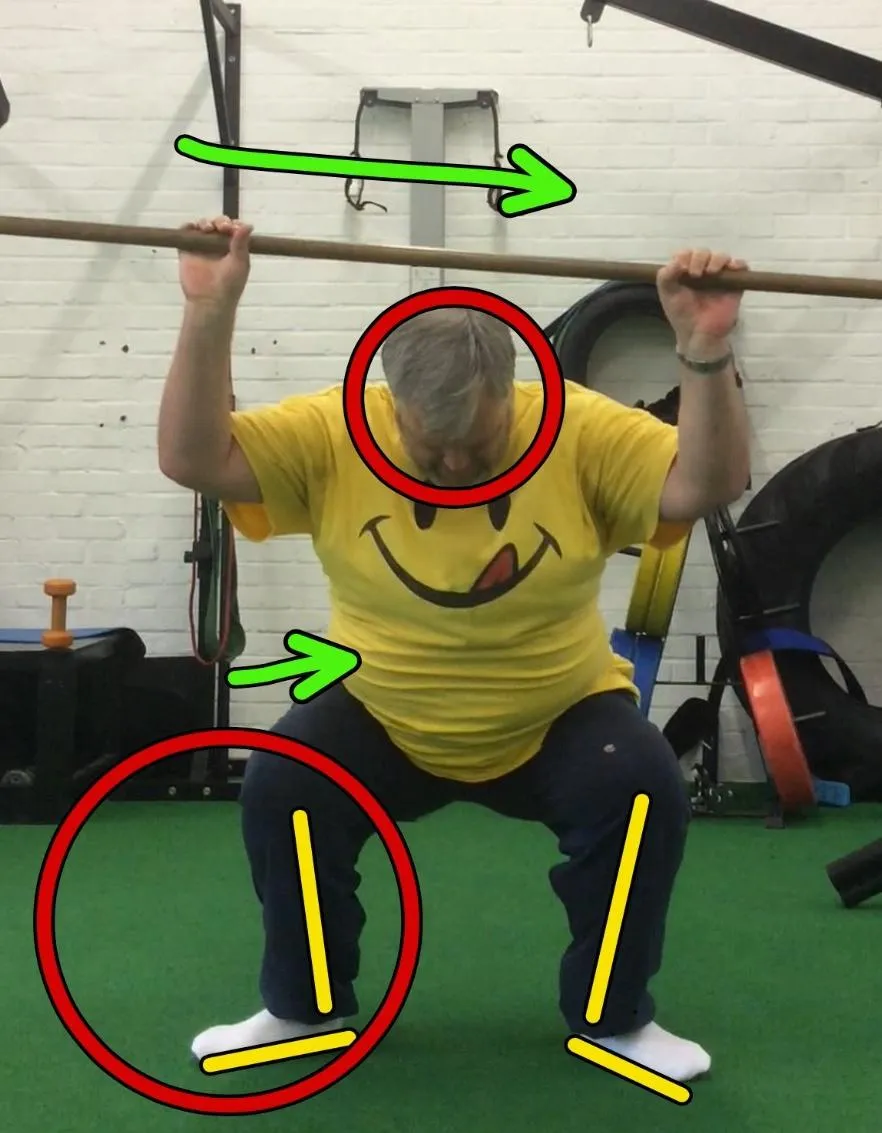
Articles
Discover powerful strategies, tips and tricks to living pain-free and getting stronger.

Understanding Chronic Low Back Pain: A Guide for 40-55 Year Olds
"age is not an obstacle in getting better."
Understanding Chronic Low Back Pain: A Guide for 40-55 Year Olds
For those navigating the tricky waters of chronic low back pain, notably in the 40-55 age bracket, the ebbs and flows of discomfort can lead to uncertainty about the best course of action. Exploring anti-inflammatories and consulting GPs is part of the complex process of managing this persistent issue.
In our comprehensive guide, we'll walk you through the essential moments for seeking expert care for your back pain, outline strategies to tackle pain triggers, discern the core contributors to your discomfort, and champion a path to a pain-free and stronger self.
Chronic Low Back Pain Simplified
The Predictable Pattern of Chronic Back Pain
Chronic low back pain typically presents itself in cycles, especially in the 40 to 55 demographic. This might look like intense pain for a period, followed by a deceptive lull that seems to signal resolution but doesn't. Not addressing the true underlying problems means the cycle persists, alternating between phases of pain and relief.
Such pain can stem from repetitive work tasks, a lack of movement and exercise, or incorrect lifting habits. Pain levels can range from sharp stings to persistent aches and may even spread to the hips and legs, hinting at nerve issues. Acknowledging and breaking free from this pattern is the initial step to overcoming chronic back pain.
Debunking the Myth: Is Pain Inevitable with Age?
It's a myth that pain is an unavoidable consequence of aging, and that is particularly erroneous when it comes to chronic low back pain. Natural bodily changes during aging do not mandate ongoing pain. Muscle strength may wane, flexibility might reduce, and the spine can show signs of wear – but these factors don't mean pain can't be addressed.
Age is not an obstacle to getting better. The right mix of specific exercises, lifestyle tweaks, and possibly medical treatments can greatly ease your back pain. Recognising that pain isn't an age requirement is a vital stepping stone to managing your discomfort and achieving recovery.
Addressing Chronic Low Back Pain
Anti-Inflammatories: A Temporary Fix, Not a Cure
Anti-inflammatories are commonly the first defence against low back pain, as they diminish inflammation and can lessen pain and swelling. Common options like ibuprofen or naproxen offer a short-term fix for many and are useful when handling acute episodes.
But beware – anti-inflammatories only mask symptoms and don't tackle the root of chronic back pain. A heavy dependency on such drugs, without resolving fundamental problems, perpetuates the cycle of pain. Plus, these meds can have adverse effects with long-term use. That's why they should be part of a larger, more comprehensive treatment strategy that also addresses the mechanical and lifestyle factors behind the pain.
Knowing When to Seek Expert Guidance
Recognising the right time to seek professional help for your chronic back pain is a crucial choice. If anti-inflammatories aren't making a lasting difference, or if your daily life is hindered by pain, professional advice is in order. Also, if you're noticing numbness, weakness, or pain that spreads to your legs, it's time for a specialist's evaluation.
Healthcare professionals that focus on back pain can conduct an in-depth assessment to find the primary causes of your pain. They might recommend personalised treatments like physical therapy, lifestyle changes, and possibly scans. The aim? Not a quick fix, but a sustainable strategy that addresses prevention, better function, and overall well-being.
Progressing Past Pain: A Plan for the Prime Years
Customised Stretching for Back Ease
Stretching, executed correctly, can work wonders for relieving back pain. It's not just a matter of reaching for your toes but about creating a personalised plan to boost spinal range of motion and relieve muscle tension. Each body reacts differently, so a tailored stretching routine is key, especially for those in their 40s and 50s.
Backbone Building: Key Exercises
Strengthening your lower back means core-supportive exercises are your allies. They lessen pain and prevent injury. Vigorous weight training isn't advised unless coupled with joint stability and sound form – it's about balance. Consider the following:
Secure a complete evaluation with a professional to pinpoint your pain's causes – click here to book an appointment.
Make core strength and spinal integrity your top priorities.
Customise your exercises to match your body's abilities and health status.
Always keep the correct technique in mind – if it hurts, don't do it.
Start easy and build up – adjust the intensity and duration to help foster back robustness and practical gains.
Under the guidance of a qualified professional, these exercises can lead to a stronger, more resilient lower back.
Choosing the Right Specialist Over Finding the Closest
Seeking nearby "physios" might be convenient but isn't the best approach to finding the help that will genuinely affect your back pain. It's about quality, not just location. Search for specialists with a track record in low back pain.
Your rehab plan should be as unique as you are, taking into consideration your pain's causes, lifestyle, and goals. A specialist versed in, say, the McGill Method, can tailor exercises to your specific back woes. A custom approach is more effective than a generic one, so take the time to find your ideal expert.
Embracing Change: From Pain to Empowerment
Identifying Pain Triggers for Control and Management
Pain triggers can be certain movements, habits, or even emotional stress. In your prime years, triggers may include long periods of sitting, lifting heavy objects, or constant bending. Figuring out these triggers involves monitoring when and how your back pain occurs.
A diary of your pain incidents can reveal patterns – note down the precise activity at the time of each flare-up. Understanding triggers empowers you to make proactive changes and protect your back.
Committing to Improvement: Schedule Your Comprehensive Back Pain Assessment
A thorough assessment with a specialist is fundamental to finding relief. Dedicate time to think about your health journey thus far. Be prepared to convey the intricacies of your pain and recall past treatment attempts.
In your evaluation:
Discuss the broad narrative of your back pain history.
Get a full review of your back's health, including posture, mobility, and muscle strength.
Co-create a treatment plan tailored specifically for you, focusing on exercises and lifestyle enhancements to promote your back's natural recovery processes.
Scheduling your assessment is a proactive declaration of intent to conquer chronic back pain. Get back to being your best:
Book your tailored back pain assessment now by clicking here.
In your corner
Thomas Bisson
"The Back Pain Guy"

Discover How To Strengthen Your Spine And Get Pain-Free Using 7 Easy Exercises
Download the free 32-page guide and get instant access now

Learn how to move freely without triggering your pain so you can regain your health, live an active lifestyle again and prevent further injury.

+44 (0)7825 291950

tom@supergene.co.uk

Heathway, Woodford Green, IG8 7RG
© Body By Bisson
Privacy Policy | Terms and Condition
